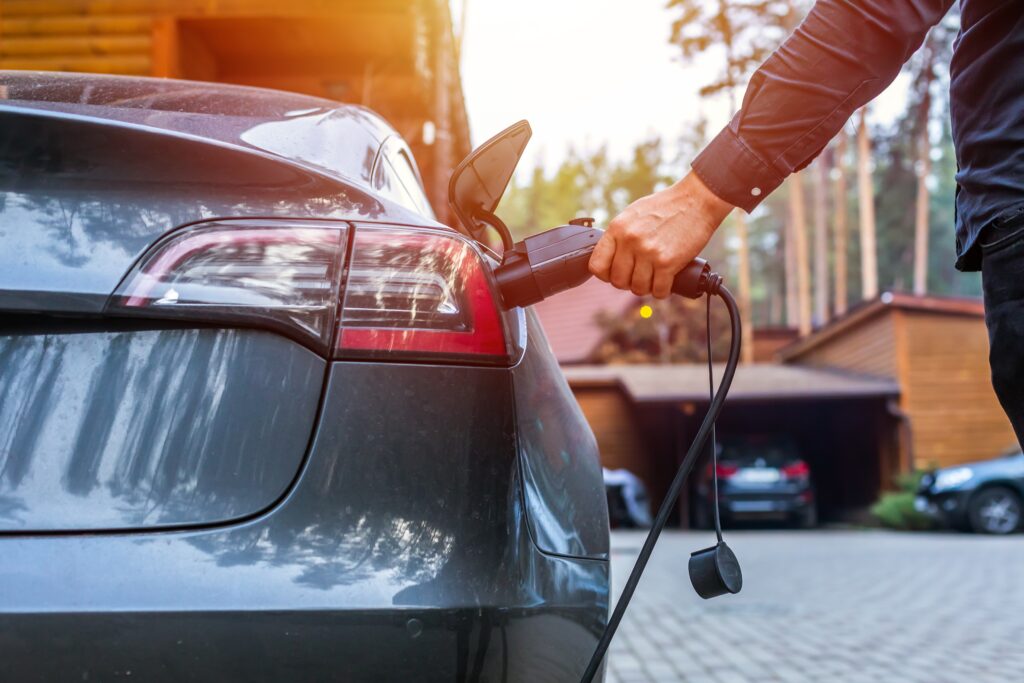Operating a fleet involves many moving parts, so adding electric vehicles (EVs) with their own particular set of requirements complicates matters. Varying information in the market about fuel and recharging costs further muddies the waters, writes Ashley Tate, Managing Director of Allstar Chargepass UK.
It can be hard to distinguish fact from fiction between opinions from friends and information from the media or online forums. Equally challenging can be truly understanding how the costs stack up for internal combustion engine (ICE) vehicles compared to an EV. And within that, do you know the costs of recharging at public charge points compared to home charging?
Because this field is so new and this type of information isn’t readily available to properly inform business decisions on an ongoing basis, we’ve answered this need. My team collated vast amounts of Allstar data, calculated from millions of fuel transactions and hundreds of thousands of on-the-road charging events throughout the network and at-home charges over the last quarter, to report the real-life cost of petrol, diesel and electric refuelling.
Here, I’ll share some of the most impactful data insights from our inaugural report, what they mean and how this information can immediately affect your fleet.
At home charging is cheaper
Our analysis shows that the most cost-effective vehicle to drive and fill up the proverbial tank is an EV that is recharged at home. For example, a salesperson’s executive vehicle to travel to meetings with clients could charge 9 pence per mile from a home charger, whereas it could cost 19.6p for petrol or 16.3p for diesel. A panel van, the largest vehicle covered by our report, could cost 15.6p for home electric charging versus 23.7p for diesel. It’s worth noting that petrol versions of this vehicle type are uncommon. Larger vehicles are notoriously difficult to run efficiently on electric drivetrains, yet even at the heaviest weights, there is a significant difference in cost between electric and fossil fuels.
So far I have only drawn a comparison between charging at home, petrol and diesel and there’s a good reason for this. Public EV charging tends to be more expensive, even when electricity prices are reducing. Our research has revealed that charging in public can cost over 20 times more than at-home – home tariffs can be as low as 4p per kWh, while some public rates exceed £1. That being said, there can be other considerations, such as whether and for how long a driver can use an ultra-low tariff at home or if they will need to use peak rates to achieve a full charge. On the other hand, how fast are the most expensive public chargers, and is paying more to get back on the road much quicker a greater benefit to the business than the energy cost would have been?
This gap in home and public charging may narrow over time as public charge points become more widespread and EVs become a larger percentage of vehicles on the road. Still, EV-centric electric tariffs are also becoming increasingly common, which will encourage home charging.
As such, fleet operators should invest in at-home and on-premises charging. There may be more straightforward options if space limitations exist on site for a bay of charge points. Similarly, a driver may live in a flat or another type of building where installing a charger would take work. Even so, it remains the cost-effective option, potentially saving businesses thousands of pounds per year.
Location, Location, Location
We all know that fossil fuels vary in price depending on the type and geography of the forecourt. Public EV charging is also highly variable. Unfortunately, there is little consistency between where it is and isn’t cheap to charge—city or country, north or south. Public charging means rolling the dice on price.
To provide a snapshot, in the capital’s busiest area for charging, Greater London, drivers could expect to pay around 75p per kWh. This is less than what you could pay in Bristol (78p) or Flintshire (79p) but significantly more than what you could pay in Belfast (59p) or the Isle of Wight (57p). In fact, charging a 70kWh EV on the Isle of Wight would cost £39.90, but take a trip across the Solent to Dorset, and the same charge could cost £53.20, where the average cost per kWh was 76p.
With no clear rhyme or reason for the distinct geographical discrepancies, drivers need solid, up-to-date intelligence. With Allstar Co-Pilot, drivers can see the cost per kWh for each site in the app to find the best site that meets their needs.
The growth of EV
New car registrations rose by 10.4% in March 2024, the 20th consecutive month of growth, primarily driven by fleet investment. Businesses are, therefore, continuing to prioritise their fleets, yet there seems to have been a slight shift in the popularity of powertrains following a dip in fully electric vehicle registrations. Fleets are keeping their net zero goals front and centre of their minds, with an increase in hybrid vehicle registrations demonstrating the desire to transition from traditional fuels to fully electric vehicles, which can be a great halfway house for many.
Regardless of the powertrain a business chooses, it must be able to operate seamlessly – able to recharge or refuel at convenient locations, make payments as easily as possible, and travel without barriers. Understanding the transition and needs of drivers has been a critical priority for us, which is why we launched Allstar Chargepass – the UK’s only fleet payment solution to cover fuel, public charging and home charging.
What’s next?
There are strong financial incentives for businesses to switch to EVs, particularly if they have the option for their drivers to charge from home. Those who don’t have the facilities to enable this or need to recharge while on the road will need up-to-date information on where to get the best prices on public charging. Unique solutions on the market today ensure they are always getting the best prices and moving forward in the EV revolution.
To download a copy of the comprehensive AllCosts report, visit: https://ow.ly/pV5V50QOvFQ




